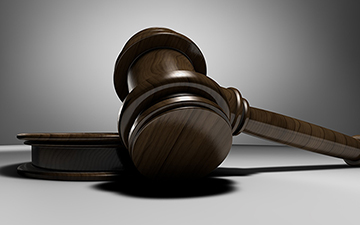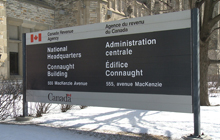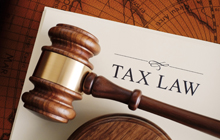Hamad v. The Queen

Canadian tax lawyer and accountant David Rotfleisch on due diligence In director liability for taxes
 |
David J. Rotfleisch, CPA, JD, is the founding tax lawyer of Rotfleisch & Samulovitch P.C. |
TORONTO – The Tax Court of Canada recently released a decision regarding director's liability for corporate tax debt under section 227.1 of the Income Tax Act in Hamad v The Queen 2019 TCC 137. In simple terms, subsection 227.1 of the Act holds directors of corporations liable for uncollected or unremitted amounts for source deductions on salaries and withholding taxes on payments to employees when the CRA is unable to recover the tax owing from the corporation itself. On a related note, subsection 323(1) of the Excise Tax Act provides a similar rule for GST/HST collections.
In cases where a director is held personally liable for the corporation's tax debts, three rules generally apply.
1) the CRA was demonstrably unable to recover the tax owing from the corporation directly;
2) any action or proceeding to recover the amount payable from a director of a corporation has to be commenced within two years after the director involved ceased to be a director; and
3) directors will not be held liable in cases where they showed that they exercised the necessary degree of care, diligence, and skill (due diligence) to prevent the failure.
In the case of the last rule, the defence of due diligence is expressly qualified by statute in subsection 227.1(3) of the Act. If a director can show that he or she exercised the degree of care, diligence, and skill to prevent the corporation's failure to remit, the director will not be held personally liable.
With the ruling in R. v. Buckingham, the standard of care that would satisfy the due diligence requirement was changed to the "objective standard" of a reasonably prudent person in comparable circumstances from the "objective subjective standard" laid out in Soper v. The Queen. Arguably, the test set out by Buckingham is a stricter test than the one set out in Soper. Generally speaking, it's easier for CRA to argue for what a reasonably prudent person should have done in comparable circumstances to meet the standard of due diligence as opposed to what an individual director should have done given his or her personal knowledge, specific background and individual circumstances.
Additionally, the court in Buckingham held that a director must exercise due diligence specifically with a view towards preventing the corporation's failure to remit taxes rather than a more general view to the corporation's best interest. Where a director tries to advance the operation of the corporation by diverting remittances for other purposes, the due diligence defence under subsection 227.1(3) will not be available.
How was due diligence met in this case?
In the case of Hamad, the taxpayer was the director of a corporation that developed hydrokinetic turbines. In 2014, the corporation fell into financial hardship when the newly elected Quebec government terminated the agreements of the outgoing government and thus halted production of six turbines already under development by the corporation. After making significant efforts to continue in its business, the Corporation finally filed for bankruptcy in 2015. As a creditor during the settlement, the CRA received payment for its secured claim but received nothing for its unsecured claim which resulted in an assessment against the taxpayer.
At trial, the court found that the taxpayer had fulfilled his duty of care, diligence and skill to prevent failures to remit as required under the section 227.1 of the Act. A particularly decisive factor for the court was the fact that prior to the bankruptcy, the corporation held a shareholder meeting to request further funds. There, the corporation requested funds in the amount of $150,000 to support employee pay in order to retain the key employees to not only to keep the corporation running but also to meet its obligations under 227.1 of the Act. The fact that the management of the corporation provided shareholders with information regarding the remittance of source deductions, taxes, and dues and made an earnest effort to procure funding to meet these obligations was, in the eyes of the court, evidence that the taxpayer had been attentive to the remittances under 227.1 and met its standard of due diligence.
Be aware of the "due diligence" standard in the specific areas of law relevant to one's business. Directors and officers of Canadian corporations can be held personally liable for a corporation's non-compliance with a myriad of statutory or regulatory requirements. However, this risk can be managed by being aware of the due diligence requirement with respect to regulatory schemes such as employment, environmental and taxation.
David J Rotfleisch, CPA, JD, is the founding tax lawyer of Rotfleisch & Samulovitch P.C., a Toronto-based boutique tax law firm. With over 30 years of experience as both a lawyer and chartered professional accountant, he has helped start-up businesses, resident and non-resident business owners and corporations with their tax planning, with will and estate planning, voluntary disclosures and tax dispute resolution including tax litigation. Visit www.Taxpage.com and email David at david@taxpage.com.










(0) Comments